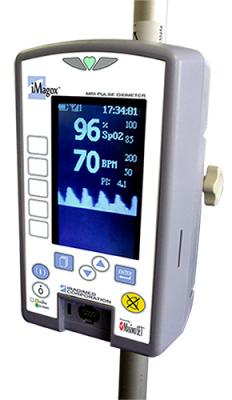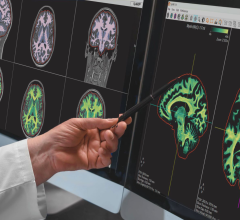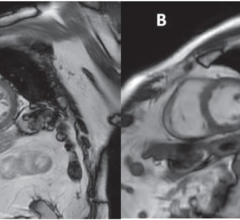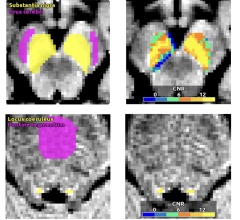
August 29, 2019 — A notable increase in the prevalence of chronic diseases has led to a surge in sales of high-end diagnostic machines, including magnetic resonance imaging (MRI) scanners, which in turn is fostering demand for MRI-safe pulse oximeters, according to a new market report.
Developed with non-magnetic components, MRI-compatible pulse oximeters have been gaining ground in early detection of critical congenital heart defects (CCHD) by accurately measuring the blood oxygen level of a newborn.
Global sales of MRI-safe pulse oximeters were valued at $29 million in 2018, and are estimated to record a year-over-year growth of ~2 percent in 2019, according to the report from Future Market Insights. As per the research findings of a new study, constant technological advancements in medical devices that target improved efficiency and convenience have been sustaining the use of MRI-compatible pulse oximeters. However, manufacturers are hard pressed to innovate, as the applicability of highly advanced pulse oximeters extends beyond MRI environments.
Recent developments in medical devices allow for generation of real-time information, tracking of past health records, identification of potential issues and devising effective treatment plans. The study finds that stakeholders in MRI-safe pulse oximeters market are leveraging new sensor technologies such as fiber optic SpO2 sensors to avoid conductive pathways and improve device safety. With the approval of 7T MRI scanners, MRI-safe pulse oximeters will further become the breeding ground for innovations and new developments.
The study estimates that the MRI-compatible pulse oximeters market will register a compound annual growth rate (CAGR) of 2.4 percent during the given timeframe. High costs associated with MRI procedures have been creating a wave of reluctance among healthcare professionals and patients to adopt MRI-safe pulse oximetry testing.
However, increasing popularity of medical tourism and favorable health insurance policies in both developed and developing countries are likely to attract patients towards expensive yet efficient MRI scan therapy, and subsequently drive the sales of MRI-compatible pulse oximeters.
Wireless MRI-safe Pulse Oximeters Capture Significant Shares
Aligning with the rapid development of state-of-the-art medical devices and technologies, the FMI report found that market players continue to increase the production of wireless MRI-safe pulse oximeters that do not need to be connected to MRI machines. Operated through infrared (IR) or Bluetooth technology, wireless MRI-safe pulse oximeters have also witnessed higher innovations and investments as compared to wired variants. According to FMI, 6 in 10 units of MRI-compatible pulse oximeters sold in 2018 were wireless. Additionally, MRI-safe pulse oximeters without a monitor continue to account for greater revenue share over their counterparts, as they can be coupled with a wide range of monitors.
According to the study, while business growth strategies remained influenced by the increasing adoption of MRI-safe pulse oximeters in hospitals, manufacturers are working towards capitalizing on diagnostic laboratories and ambulatory surgical centers for expanded customer base. Increasing patient visits in well-equipped laboratories for complete diagnosis of diseases has also led to realignment of these strategies.
Growth prospects of the MRI-safe pulse oximeters market, as identified by the study, are high in North America. Heavy investments in research and development (R&D) activities on medical devices and technologies, along with favorable reimbursement scenarios in the region, are likely to offer lucrative opportunities for the market players. In addition, manufacturers are viewing Asia Pacific as a target market, considering increasing healthcare expenditure and growing awareness of new medical devices in the region.
The new business intelligence report also offers key insights on the competitive scenario in the MRI-compatible pulse oximeters market. As per the study, the market shows a high level of consolidation, with the top two players, including Nonin and Koninklijke Philips N.V., collectively accounting for ~41 percent of revenue share. Filling gaps in their portfolio to master the diagnosis of chronic diseases, rather than focusing solely on one specific product category will be a key focus area for the stakeholders.
This study tracks the growth of global market for MRI-safe pulse oximeters during the projection period of 2019-2029.
For more information: www.futuremarketinsights.com


 April 17, 2024
April 17, 2024 








